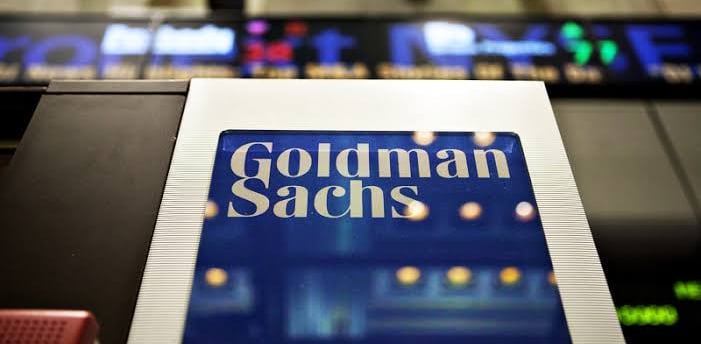Add your promotional text...
Indian Equities Downgraded: Goldman Sachs Shifts Outlook from Overweight to Neutral
Synopsis: Goldman Sachs has revised its outlook on Indian equities, shifting from an overweight to a neutral stance. Concerns about slowing economic growth, weakening corporate earnings, and foreign investor sell-offs have prompted the downgrade. While structural growth remains intact, a challenging macroeconomic environment and overvaluation are expected to limit significant market gains in the near term.
TOP STORIES
By Vishwash Saxena
10/23/20244 min read


Goldman Sachs Group Inc (NYSE: GS) has taken a cautious stance on Indian equities, moving its recommendation from overweight to neutral. The decision, influenced by a combination of weakening economic growth and deteriorating corporate earnings, signals potential challenges ahead for one of the world’s faste”t-growing markets. Despite long-term structural strengths, near-term risks appear to be mounting, leading to a more guarded outlook for investors.
Key Stock Indices Experience Sharp Declines
The downgrade comes at a time when Indian stock markets are witnessing sharp corrections. The NSE Nifty 50 Index, a key barometer for the country’s equity market performance, recently recorded its steepest monthly decline since the onset of the COVID-19 pandemic. This downturn underscores growing concerns about the immediate health of India’s economy and corporate profitability.
In a research note issued on Tuesday, which was reported by Bloomberg, Goldman Sachs strategists led by Sunil Koul provided a nuanced analysis of the current situation. While reaffirming their belief in the long-term structural case for India, they highlighted that cyclical slowdowns were becoming increasingly visible across various sectors of the economy.
Corporate Earnings Under Pressure
The Indian corporate sector has also come under pressure, with a notably weak start to the September-quarter earnings season. According to the Goldman Sachs strategists, worsening earnings sentiment and a rapid pace of earnings-per-share (EPS) downgrades have raised red flags. These indicators suggest that Indian companies may struggle to deliver the robust profit growth that investors have come to expect.
“While a large price correction seems less likely due to strong domestic inflows, Indian equities could face a ‘time correction’ over the next three to six months,” the research note stated. Essentially, this means that rather than a sharp fall, the market could stagnate or tread water for a period, with gains remaining elusive in the short term.
Lowered Market Targets Reflect Caution
In light of these factors, Goldman Sachs has revised its 12-month target for the Nifty 50 Index. The target has been reduced from 27,500 to 27,000, signaling only a modest 10% upside from Tuesday’s closing levels. This conservative forecast reflects expectations of limited growth potential in the near term, with high valuations and a challenging macroeconomic backdrop tempering market optimism.
Currently, the Nifty 50 trades at 20 times its 12-month forward earnings, higher than its five-year average of 19.4 times. Such elevated valuations point to potential overvaluation, further justifying Goldman Sachs’ cautious approach.
Foreign Investor Sell-Offs Intensify Market Pressure
Foreign investors, who have historically played a pivotal role in Indian market dynamics, have been pulling out in significant numbers. According to Bloomberg data, overseas funds withdrew a net $7.8 billion from Indian equities in October, marking the largest monthly outflow since March 2020. This exodus comes as investors respond to India’s weakening economic indicators and rising inflationary pressures.
The wave o’ foreign sell-offs has exacerbated concerns about the sustainability of recent market gains. Additionally, analysts are warning of slowing earnings growth, driven by several headwinds, including a high base effect from last year, weakening consumer demand, and shrinking profit margins.
Earnings Growth Forecast to Hit Post-Pandemic Low
Other prominent brokerages share Goldman Sachs’ cautious view. Financial firms such as Motilal Oswal Financial Services, Nuvama Institutional Equities, and Axis Securities have all forecasted a sharp decline in Q2 earnings growth for Indian companies. According to these institutions, earnings growth in the July-September quarter could drop to a post-pandemic low, with profit growth potentially moderating to just 2%.
If these projections hold true, the Nifty 50 companies would be experiencing their slowest earnings growth in 17 quarters. This stark shift underscores the mounting challenges that Indian corporations face in maintaining profitability amid a cooling economy and rising input costs.
Sectoral Outlook: Bright Spots and Challenges
Despite the overall neutral stance on Indian equities, Goldman Sachs has identified some sectors that continue to show promise. The firm remains overweight on sectors such as automobiles, telecommunications, and insurance, reflecting confidence in their long-term growth potential. Additionally, it has upgraded its outlook for the real estate and internet sectors, citing improving fundamentals and growth prospects.
On the other hand, cyclically sensitive sectors such as industrials, cement, chemicals, and financials have been downgraded. These industries, often tied closely to the broader economy, are expected to face tougher conditions as economic growth slows.
Navigating Volatility: A Focus on Quality and Earnings Visibility
In light of the current uncertainty, Goldman Sachs recommends that investors focus on companies with strong earnings visibility and prioritize quality. Investors are also advised to explore targeted alpha strategies—an investment approach aimed at generating returns that exceed market averages by focusing on specific themes or trends.
This strategic shift underscores the importance of being selective in the current environment. As Indian equities face a period of potential stagnation and volatility, careful stock selection and attention to fundamentals will be key to navigating the challenges ahead.
Conclusion: A Cautious Approach for Uncertain Times
While the long-term growth story for India remains intact, the near-term outlook is clouded by a range of economic and corporate challenges. Goldman Sachs’ downgrade from overweight to neutral reflects these concerns, emphasizing the need for caution in the months ahead. High valuations, slowing earnings growth, and foreign investor sell-offs all point to a market that could struggle to deliver significant gains in the near future.
For investors, the key takeaway is to remain vigilant, focus on quality, and be prepared for a period of potential stagnation as the Indian equity market adjusts to these evolving realities.
